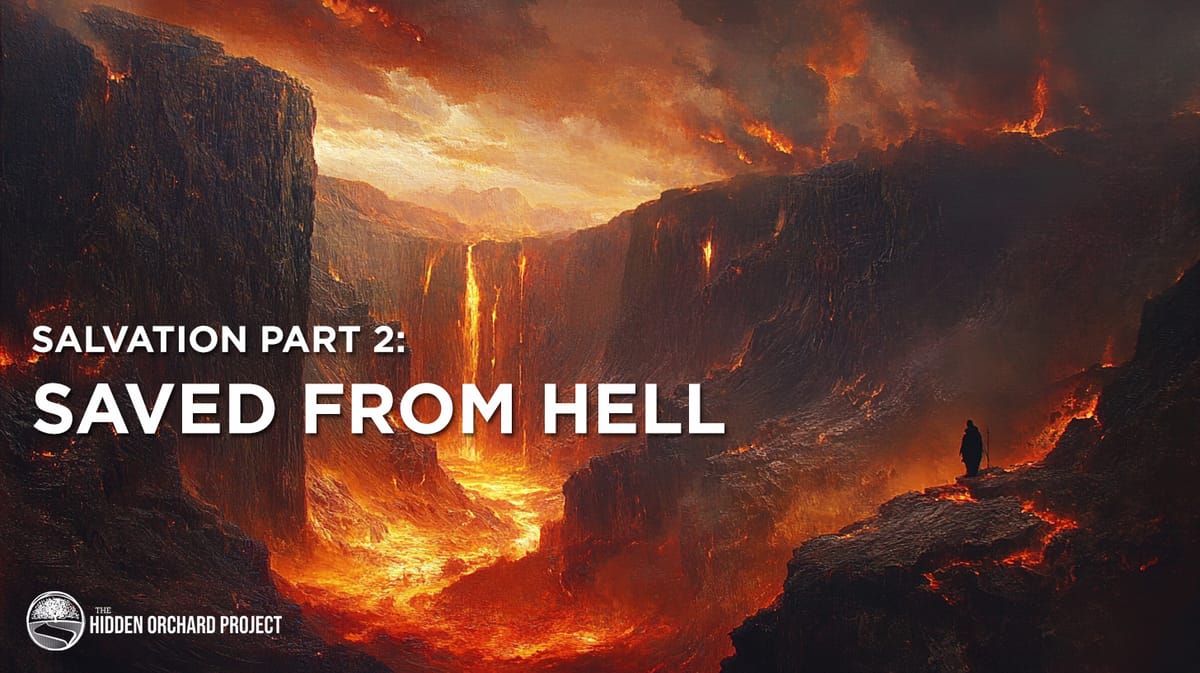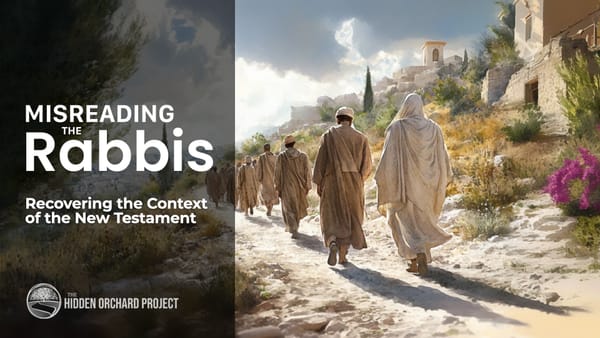Salvation Part 2: Saved From Hell
In part 2 of this series, we explore the overlap of the ideas about the soul and its journey after death. Is hell eternal, and is there repentance after life?

In Part 1, we explored some of the core divergences between the historical Jewish and Christian traditions of salvation.
We looked at how one key difference in the Jewish view includes the literal Davidic¹ Messianic Kingdom and the restoration of the people of Israel. We also shared how Christianity indexed its focus the soul's destination in the afterlife.
That said, there is some crossover in the spiritual aspects of salvation. Ideas often believed to be Christian innovations may have their roots in Jewish mysticism².
The Soul's Journey
As frequent readers of the Hidden Orchard Project know, Jewish thought has much to say concerning the soul.
Though present in the Apostolic writings, access to these traditions waned as Christianity emerged as a new religion, entangled with foreign ideas.
As a result, for many branches of Christianity, this afterlife-focused idea of salvation has trended toward a terrifying outcome. Many hold the belief that all humanity is essentially hell-bound unless one becomes a Christian at some point in their life.
This view is oversimplified and problematic, and I believe the Bible and tradition show us that G_D has many means available to restore and repair damaged souls.
Though we could never explore these ideas fully in one series, we will seek to find the root of a few popular ideas that may have originated in the Jewish tradition. With a little clean up, we may be able to reveal new perspective.
Substitutionary Atonement
"Substitutionary Atonement" is the doctrinal idea that G_D has accepted Jesus's death as an atonement for others, namely, Christians.
Though there is variance in this idea, the inference is that believers are thus saved from an eternity in"Hell".
However, without the parameters and framework of the Torah tradition, these ideas can be presented in ways that are almost indiscernible from human sacrifice. This has contributed to a major disagreement between Jews and Christians as these practices are forbidden in the Torah (ie: Deuteronomy 12:31).
While the metaphoric language of this nature can be found in the New Testament, for instance, 1 Peter 1:19, there might be something else in the tradition we can compare.




